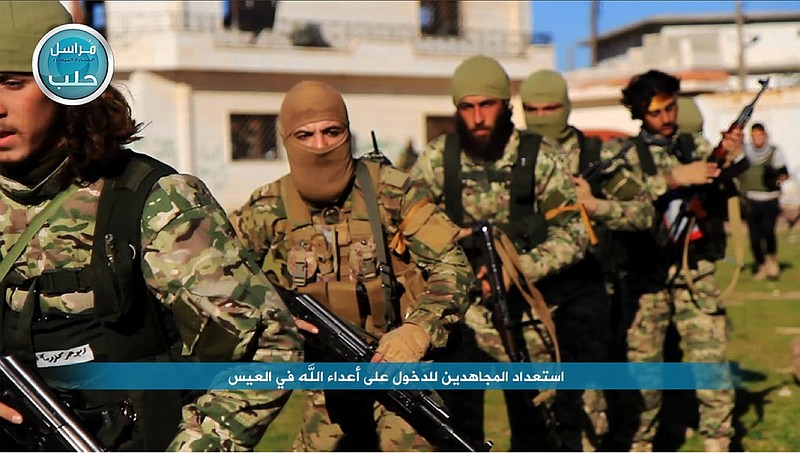BEIRUT (AP) - The Nusra Front, which was formed as al-Qaida's branch in Syria, announced Thursday it was ending its connection with the terror network and changing its name to the Levant Conquest Front. Here's a look at the move and what it means.
DID IT REALLY LEAVE AL-QAIDA?
Nusra's leader, Abu Mohammed al-Golani, said in a video announcement that the Front no longer had any ties to an outside group, meaning it is formally no longer a branch. But deep connections remain.
The group retains its Islamic militant ideology and commitment to jihad, and the formal break was carried out with the blessing of al-Qaida's central leadership, which recognized it was needed to protect the group.
The United States immediately expressed skepticism over the announcement, saying it still considers Nusra a threat to the U.S. plotting attacks abroad.
___
SO WHY SPLIT?
By claiming it is no longer al-Qaida, the Front hopes to deepen its alliances with other Syrian rebel factions, believing that will give it a degree of protection from U.S. and Russian airstrikes.
The group already works alongside some factions, drawn to it because it is one of the most powerful forces fighting the government of Syrian President Bashar Assad. But others have been cooler, like the hardline Islamist Ahrar al-Sham, which has tried to stay closer to the mainstream Syrian opposition.
___
IMPACT FOR THE U.S.
The move makes it even harder for the U.S. to draw a clear line between Syrian rebels, who it insists should not be targeted by airstrikes, and militant groups, which are targeted. That line is already hazy, hurting efforts at a peace process.
A U.S.-Russia-backed cease-fire earlier this year did not cover the Nusra Front and the Islamic State group, meaning Russian warplanes and Syrian troops could continue to target them. But Russian strikes also hit rebel factions, including ones backed by the United States - even while Moscow argued it was only hitting "terrorists." The cease-fire soon fell apart.
The U.S. and Russia are now trying to hammer out an agreement on a new military partnership in Syria. One leaked U.S. proposal would call for a sharing of intelligence and targeting for strikes against IS and Nusra on the condition Russia commits to convince its ally Assad to ground Syria's bombers and start a political transition process.
But if rebels grow closer to an ostensibly "al-Qaida-free" Levant Conquest Front, they are likely to see such an air campaign as just a pretext for Moscow to help Assad defeat insurgents.
___
DOWNSIDES FOR NUSRA
Breaking with al-Qaida, even if only in name, also could hurt Nusra: It loses the brand name that drew many of its fighters to its ranks. That could drive away members.
Foreign fighters in particular could become disillusioned since many of them were drawn by the al-Qaida link and see their participation in the Syria war in more universal terms of global jihad rather than as simply a campaign to oust Assad, said Sam Heller, a Beirut-based analyst who writes about the Syria war.
